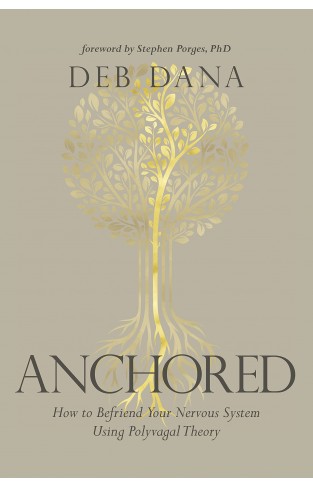Reduce Stress and Overwhelm Through a Deeper Understanding of Your Nervous System. We’ve all had experiences where our reactions felt completely out of proportion to the situation. Perhaps a meeting with your boss made you feel like you were in the path of a speeding car. Or it may be that certain relationships in your life felt out of control. In Anchored, Deb Dana presents a simple, hopeful message: when you ground yourself with openness, mindful attention, and curiosity, you can gain the understanding necessary to reshape these seemingly uncontrollable responses. Dana draws on her considerable experience as a clinician and teacher, her extensive work with Polyvagal Theory, and her long-lasting close collaboration with its founder, Dr. Stephen Porges. Polyvagal Theory posits that our survival responses are regulated by the vagus nerve (the highway of the nervous system, which sends signals directly from the body to the brain) and can be consciously shaped through exploratory practices that offer a greater sense of safety. Dana illustrates how to work with the body’s innate ability to pick up social signals and cultivate “micro-moments” of safety in order to regulate automatic responses to stress, conflict, and hardship. Including in-depth practices such as guided imagery, meditation, and ongoing self-inquiry, Anchored offers a practical user’s manual for moving from a place of fear and panic into a grounded space of calm and balance.












